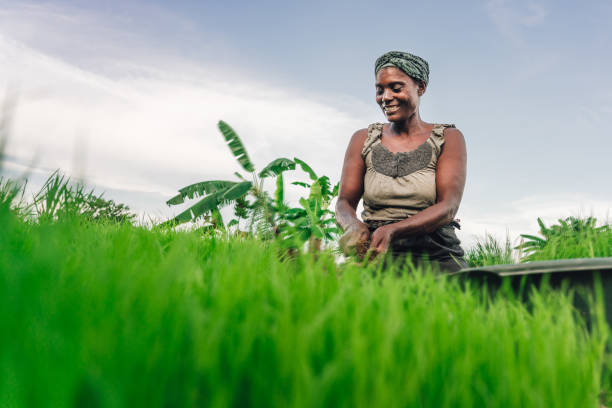ActionAid has tasked the Federal and State Governments to ensure massive investment in agriculture processing, storage facilities, transportation and market access.

Azubike Nwokoye, Food and Agriculture Programme Coordinator, ActionAid Nigeria, made the call in an interview on Monday, February 21, 2022, in Abuja.
Nwokoye frowned at the estimated N3.5 trillion post-harvest losses annually in the country and said that investments in those areas would aid in mitigating such huge challenge.
In reference to the organisation’s Biennial Review (BR) Report, Nwokoye said that Nigeria made significant improvement in the 2nd BR Report relative to the 2017 score by 52 per cent.
He said that areas of commitments which Nigeria was not on track included: enhancing investment finance in agriculture, ending hunger by 2025, halving poverty through agriculture by 2025 and enhancing resilience to climate variability.
BR is aimed at strengthening national institutional capacity for agriculture data generation and knowledge management.
It supports improved evidence-based planning, implementation, monitoring, evaluation and learning.
The report also set basis and paths for triggering continental and national actions, programmes to collectively drive agricultural transformation in Africa.
Azubike said that ActionAid Nigeria had trained smallholder women farmers, activists, youth movement, partners and other CSOs on the use of the Non-State Actors (NSAs) Value Addition Biennial Review Toolkit (VABKIT).
He said it was to add value in the country performance reporting template in BR report.
“ActionAid has supported them to generate smallholder women farmers’ state level data related to the BR indicators across the 36 states and the FCT.
“The data was to be feed into Nigeria report in the 3rd BR exercise on the implementation of Continental Africa Agriculture Programme (CAADP).”
He explained that data or information reflected the lived realities of smallholder women farmers across Nigeria to add value in the country performance reporting template.
“The current data collected through the VABKIT shows that nationwide smallholder women farmers currently have only 18 per cent access to processing facilities, 16.6 per cent access to storage facilities and 13.5 per cent access to off-takers/access to markets.
“Also, 9.6 per cent have access to transportation for agricultural produce and 42.3 per cent access to trainings. On Extension Services, the farmers have access to only 5.26 per cent farm demonstrations.
“On agricultural credit, they have access to less than 23 per cent of existing credit facilities, and only 4.77 per cent have access to agricultural insurance, about 59 per cent of them have access to land and 29.77 per cent have control.
“Only 11.23 per cent are engaged in land governance discussions.
“While government is making effort to improve Public Private Partnerships (PPP) arrangements in agriculture sector, smallholder women farmers’ access is below 27 per cent to such schemes across the country.
“If less than 20 per cent of smallholder women farmers are having access to processing and storage facilities across Nigeria, it means that the estimated N3.5 trillion post-harvest losses annually will continually increase.
“This is a true reflection that we are not really investing to reduce these post-harvest losses which cost Nigeria as a country a lot,” he said.
He suggested that to be on track in meeting the 2014 Malabo Declaration Commitment, the three tiers of government should commit 10 per cent of their annual budgets to the agriculture sector.
Nwokoye said such commitment was required to support minimum of six per cent growth rate for the sector.
“Such investments should focus on strategic areas of extension services, access to credit, women and youth in agriculture, appropriate labour-saving technologies and inputs.
“Other areas are post-harvest losses reduction supports processing facilities, storage facilities, trainings, market access, Climate Resilient Sustainable Agriculture (CRSA)/Agroecology, research and development, monitoring and evaluation, as well as coordination.”
By Felicia Imohimi
